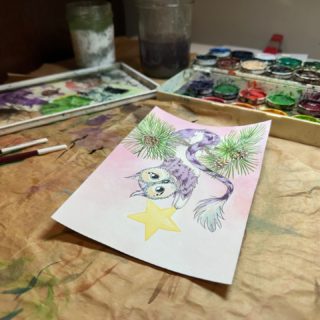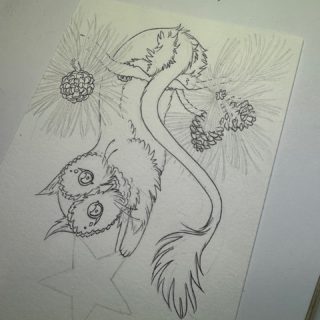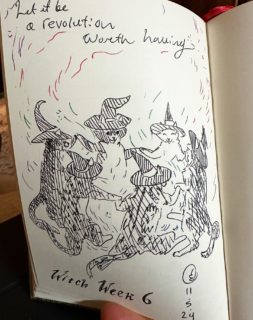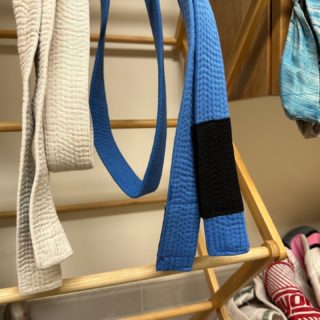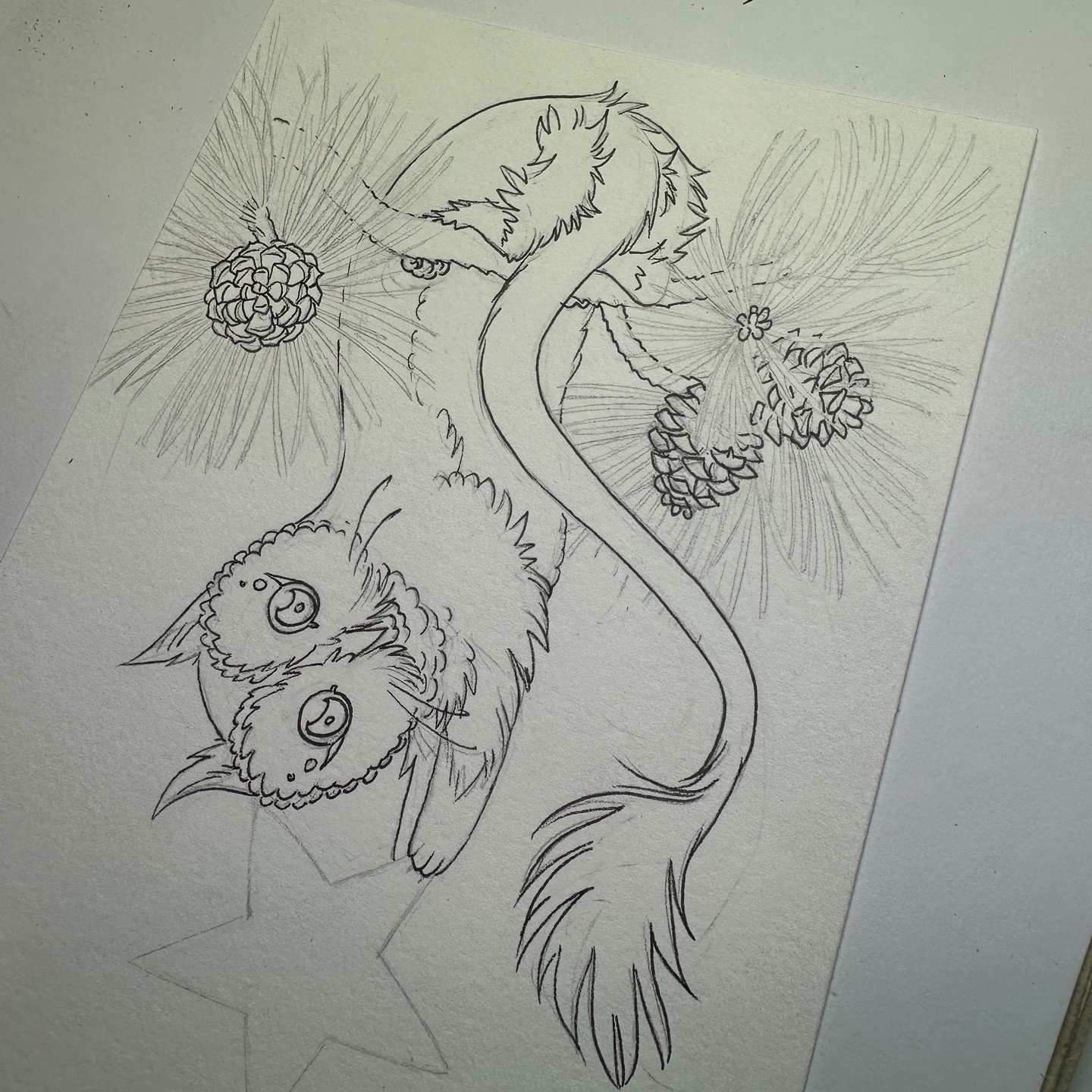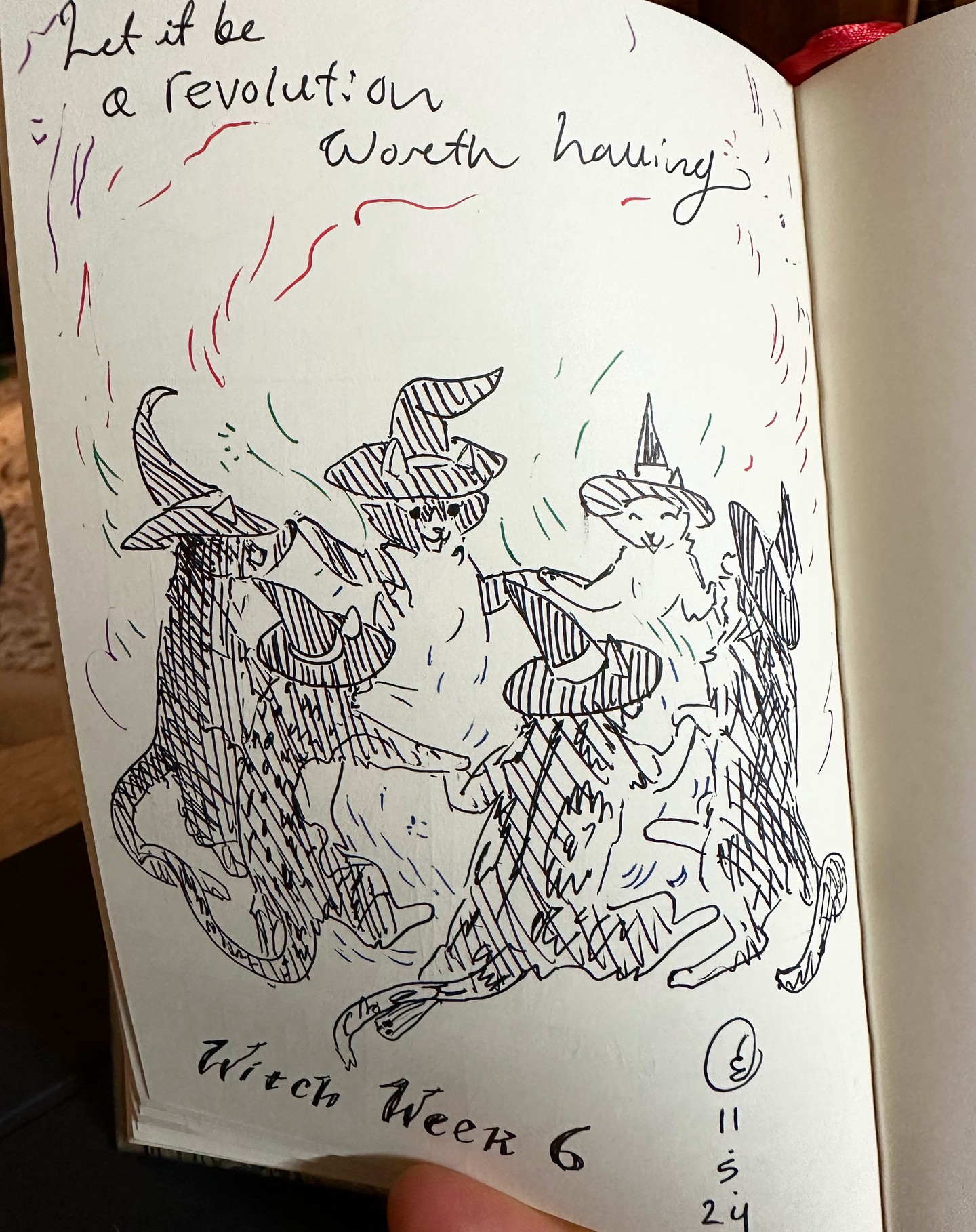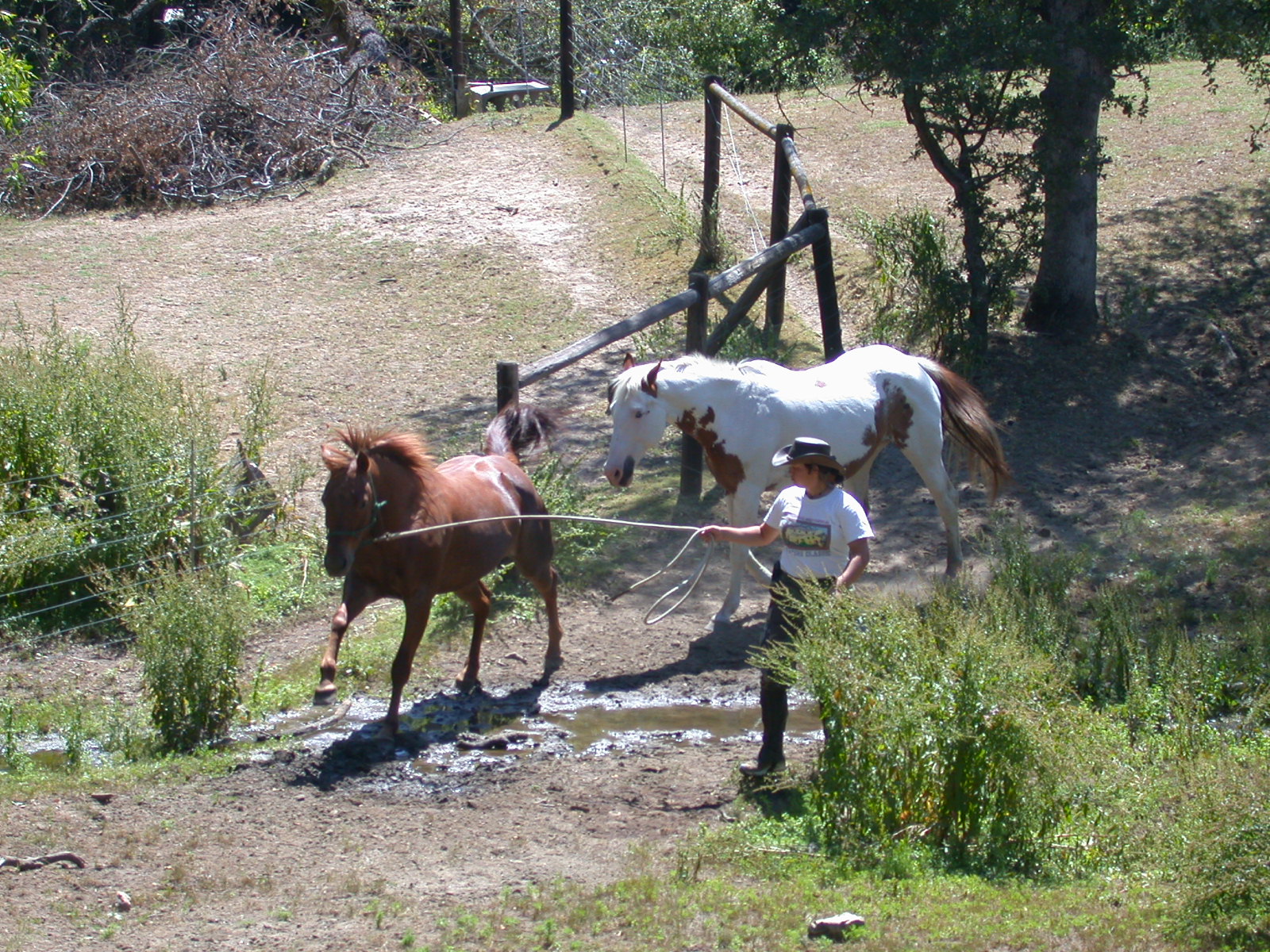
THE PEDESTRIAN’S GUIDE TO WRITING HORSES
2: Physicality
The thing that most people notice when they meet a real life horse for the first time, and the thing that a lot of writers who have never met a horse get wrong, is their size.
Horses are big animals. They are big enough that even the strongest man cannot overpower them with his bare hands. You need tools to be able to really hurt a horse (unless you get them in the eyes). The only reason they will move away if you poke them is if they’ve been trained to. There is nothing more frightening to me than a fully grown un-trained horse; they are literally loose canons, capable of immense damage and even more unpredictable.
They are, I will say again, so big you cannot kick their bodies into trenches. An average horse weighs about 1,200 lbs. A large horse could weigh twice that. Their heads alone are so heavy it takes a 100 lb. neck full of muscles to hold them up. They can break your toes if they step on them.
For all that, horses are nimble creatures. A careful horse can pick its way through piles of rocks, and most trained horses will do their best not to step on you—and for the most part they do a good job of it. Horses can stop and turn on a dime, they can jump sideways or back up sharply. Above all they can run. A running horse is a formidable sight, especially if its coming straight at you. For all that, horses are not vicious animals—far from it—and they will not try to hurt you. Most of them, anyway. However, they are so big and strong that if they accidentally hurt you, you can get hurt very badly. So you need to be careful around horses: no loud shouting, no sudden movements, no running at them waving your arms. Not at least until you know the horse and know what it will and will not tolerate. (More on this in Chapter 3: Personality)
But horses are not so big that they are like suburban cars. An average horse carrying more than 250 lbs. will feel the weight. Much more and it could injure its back. Two people, unless they are small and the horse is big even for a horse, cannot comfortably ride astride at the same time.
Still, most horses are tall enough that the average person, unless they are highly trained or athletic, will not be able to mount without either stirrups or a mounting block.
*
Horses are quiet. If unshod (barefoot) they walk almost silently. Only when they come on to a full gallop does the classic thunder of their hooves become significantly audible. A horse with metal shoes on, however, even on a dirt road, will produce a distinct “clop, clop, clop” sound.
Horses will snort frequently, even sneeze. They cannot breath through their mouths (they also cannot vomit), so keeping their noses clear is important.
Horses do not vocalize unless they mean to communicate something. They will make an adorable knickering sound (kind of “muhuhuhuhuhu”) when they anticipate being fed. If they are impatient sometimes they make a very odd sound between a squeak and a quack. It sounds rather like two pieces of wet rubber being rubbed together, and to be honest I have never found out what it is called.
The whinny does not sound like “neigh.” It sounds more like: “NnnnnheeeheheheheeHHHEHEHEEEHEEHAAAAAGH!” In varying degrees of length and volume.
Horses whinny either in greeting a friend (equine or human) or in objection to that friend leaving. They can, if they want, whinny so loud it hurts your ears if you are nearby.
*
Horses are herbivores, so their teeth are flat and square, but they eat tough food so their jaw muscles are very strong. A horse’s bite can seriously damage you. I was bitten once in a friendly, “I’m not actually trying to hurt you, I just want you to feed me that carrot, and this is just a love bite really” way, and it leaft a huge blue and purple bruise on my arm that lasted for weeks and I had to do a lot of things one-handed. And that was a friendly bite.
I have also been kicked. Once. The horse thought I was a fly. I thought my lungs had been punched out of my chest and I would suffocate. As it turned out I hadn’t even broken any ribs.
If a horse wants to hurt someone, they can. They are used to biting and kicking at animals that are either (A) trying to eat them, or (B) just as big and as tough-skinned as they are. By comparison we humans are small, squishy, thin-skinned weaklings.
If you get on the wrong side of a horse, particularly a stallion, it can kill you.
A horse can kill you by accident, if the accident is bad enough.
Horse people do not treat horses as inanimate objects. We talk to them. We let them see us, smell us, get used to us. Even so we don’t pass behind them within kicking distance, unless we are close enough to keep a hand on their rump as we walk around, so the horse knows it’s us and not a fly.
Most horses that have been trained by people like people and do not want to hurt them. If a horse is particularly attached to a certain person (and they do become attached to their riders) they will go to great lengths to keep that person from harm. The classic example is of a horse who throws her rider, then comes back over and nuzzles at her until she gets up, wanting to make sure the rider is okay. I also once read of a woman who was attacked by a “problem” stallion. The horse bit down on her arm and lifted her up into the air and was preparing to shake her like a rag doll and then presumably trample her for good measure, when another stallion (her stallion) saw what was happening and jumped out of his paddock, galloped over, and attacked the “problem” stallion, driving him away and saving the woman’s life.
*
Horses are warm creatures. They sweat (some of them sweat quite a lot), but it is still harder for them to keep cool in hot weather than it is to for them to keep warm in cold weather.
Horses are hairy. Even in the summertime, when they have short coats, the hair gets everywhere. The only reason I could imagine riding a horse naked and bareback (without a saddle) would be if someone was running after me with a cattle prod threatening to rape me with it… and then I would probably be left feeling much the same either way.
Horses are naturally alert at night and tend to sleep as much as they can during the day. Except for brief periods of lying down for their deep sleep, horses will doze standing up.
Horses like to roll in soft dirt or sand. This is adorable and hysterical to watch—see The Horse and His Boy for a wonderfully accurate and realistic portrayal of horses rolling—but horses will also roll if they’re in pain. If they’re rolling from pain it means something has gone seriously wrong.
The greatest physical weakness of any horse are their surprisingly delicate feet and easily compromised digestive system—and their propensity to finding the most innocuous artifact and seriously maiming themselves upon it (see Chapter 6: Illness and Injury).
Healthy horses have a particular smell: of salt and dirt and fresh grass. Their manure only has a strong smell if it is fresh, and horses only smell of it if they have been confined to a small stall. It smells rather like cooked grass, if you can imagine that.
This rounds up the basics of equine physicality. In the next chapter I’ll talk about their personality, the little (and sometimes big) quirks of character that make horses behave like horses.
On to Chapter 3: Personality ->
Goldeen Ogawa has been working with and around horses since she was five years old, has been a horse-owner since 2000, and currently rides every week. If you have any questions about horses not answered here you can email her at goldeenogawa@gmail.com or peck at her on Twitter @GrimbyTweets. There you can also follow her weekly horse pictures under the #TweetsFromHorseback hashtag.

